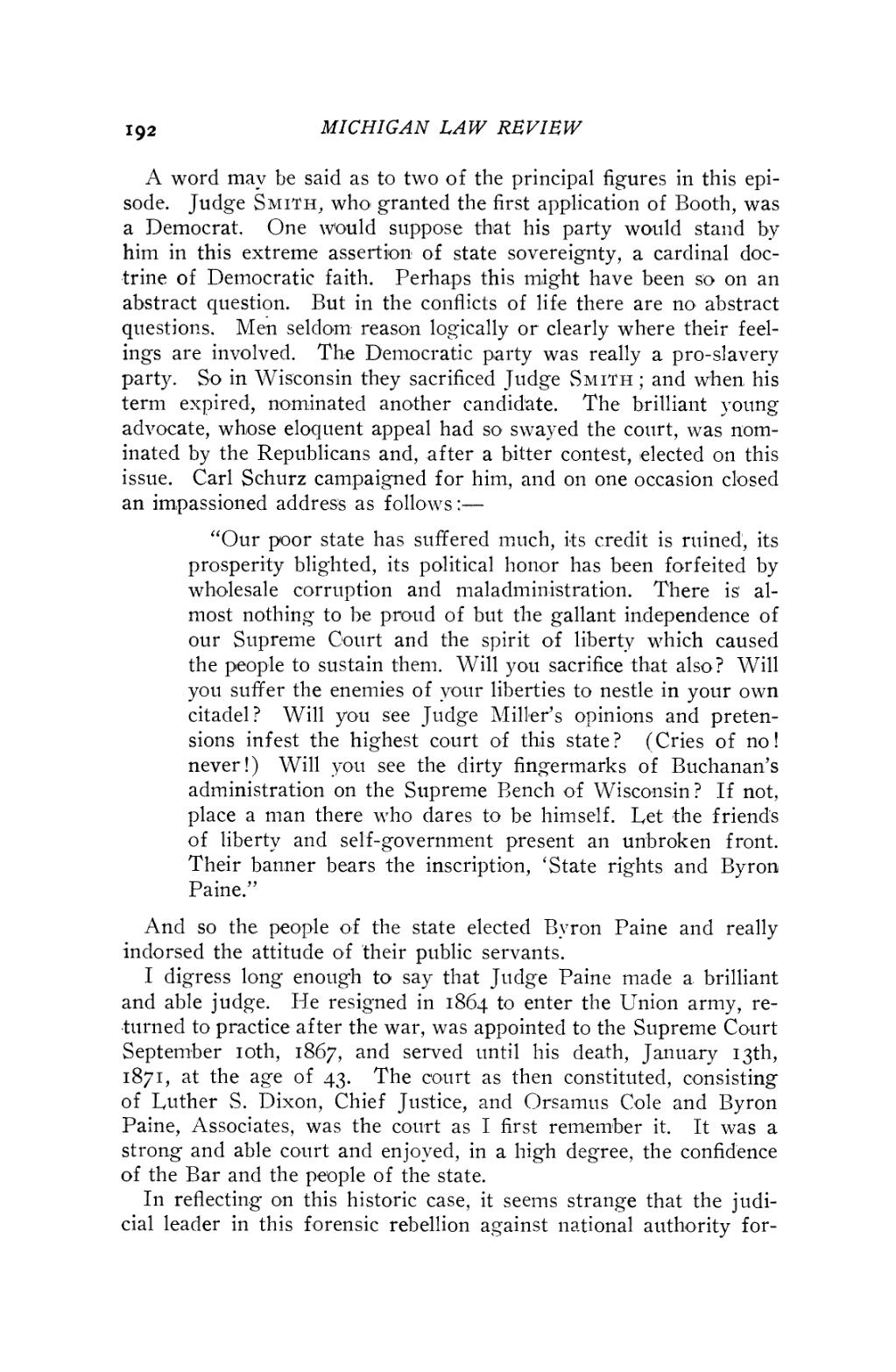A word may be said as to two of the principal figures in this episode. Judge Smith, who granted the first application of Booth, was a Democrat. One would suppose that his party would stand by him in this extreme assertion of state sovereignty, a cardinal doctrine of Democratic faith. Perhaps this might have been so on an abstract question. But in the conflicts of life there are no, abstract questions. Men seldom reason logically or clearly where their feelings are involved. The Democratic party was really a pro-slavery party. So in Wisconsin they sacrificed Judge Smith; and when his term expired, nominated another candidate. The brilliant young advocate, whose eloquent appeal had so swayed the court, was nominated by the Republicans and, after a bitter contest, elected on this issue. Carl Schurz campaigned for him, and on one occasion closed an impassioned address as follows:—
"Our poor state has suffered much, its credit is ruined, its prosperity blighted, its political honor has been forfeited by wholesale corruption and maladministration. There is almost nothing to be proud of but the gallant independence of our Supreme Court and the spirit of liberty which caused the people to sustain them. Will you sacrifice that also? Will you suffer the enemies of your liberties to nestle in your own citadel? Will you see Judge Miller's opinions and pretensions infest the highest court of this state? (Cries of no! never!) Will you see the dirty fingermarks of Buchanan's administration on the Supreme Bench of Wisconsin? If not, place a man there who dares to be himself. Let the friend's of liberty and self-government present an unbroken front. Their banner bears the inscription, 'State rights and Byron Paine."
And so the people of the state elected Byron Paine and really indorsed the attitude of their public servants.
I digress long enough to say that Judge Paine made a brilliant and able judge. He resigned in 1864 to enter the Union army, returned to practice after the war, was appointed to the Supreme Court September 10th, 1867, and served until his death, January 13th, 1871, at the age of 43. The court as then constituted, consisting of Luther S. Dixon, Chief Justice, and Orsamus Cole and Byron Paine, Associates, was the court as I first remember it. It was a strong and able court and enjoyed, in a high degree, the confidence of the Bar and the people of the state.
In reflecting on this historic case, it seems strange that the judicial leader in this forensic rebellion against national authority for-
